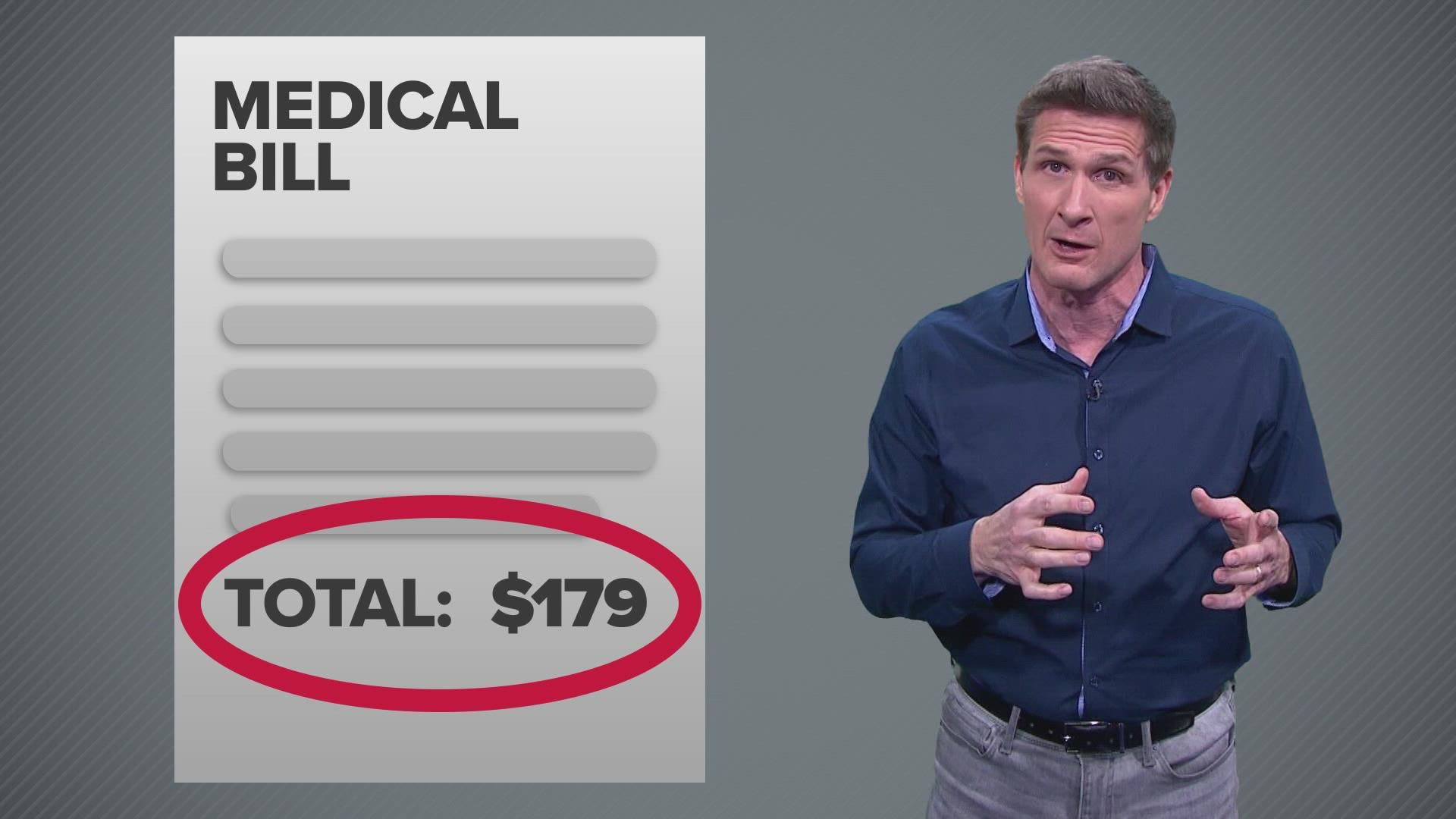DALLAS — I made a mistake last year and paid a $179 medical bill that had been rejected by my insurance because of a paperwork error made by the medical provider. I figured I’ll just pay it and get the insurance company to reimburse me for it.
Well, here we are six months later and that still hasn’t happened. I’ve spent quite a bit of time on the phone, too.
10,000 emails cleared while I waited on hold
One day I was on hold long enough that I started clearing unread emails just to be productive. I deleted more than 10,000 emails while I was on the phone! How did I even have that many? Anyway, that illustrates just some of the time I have spent on this. And it still isn’t resolved. It’s not even about the $179. Now it’s just the principle. This was a covered expense, and I should be reimbursed.
A lesson, though: I am not advising anyone about how to pay their medical bills, but personally, I would never pay that $179 bill now. Not only is it the insurance company’s responsibility, but it also isn’t as much of a concern to me now that the bill would be becoming more and more past due.
That’s because, as of Jan. 1, the big three credit reporting agencies no longer report medical debt of less than $500 on your credit report. That’s the latest in a series of sweeping changes I told you about last year that wiped a lot of medical debt off credit reports.
Another lesson: If you get into one of these battles with the insurance company and a medical provider, take detailed notes every time you talk to them. In my situation, after six months it can be hard to remember what all the people I have talked to have told me. In fact, it’s amazing how often I have filled in the blanks for them and how often I have corrected them when they change the explanations they have given me before.
A final lesson: I should’ve done this earlier, but filing a formal complaint is also a possibility. Some options are to file with the Better Business Bureau or the Texas Attorney General’s Office of Consumer Protection. Often, they can compel businesses–in this case, the insurance company or provider–to respond to your complaint.
Also, the Texas Department of Insurance could get on the case. They don’t regulate most health plans, but if your insurance card has specific markings, you can file a complaint through the TDI.
Surprise medical bills
My medical bill headache was the result of an error. It is an annoying bill and an erroneous bill. However, it doesn’t qualify as a “surprise bill.” But this made me think about those.
Surprise medical bills occur in a variety of ways. One example is when you go to an in-network facility but one of the medical professionals who tends to you is out-of-network and they charge you their higher out-of-network rate. That used to result in nasty surprise bills.
But last year the federal No Surprises Act outlawed that practice and several others. For instance, the law also banned surprise bills for most emergency services, even at out-of-network facilities, since you’re not really in a condition at that point to choose who is caring for you.
But beware: The law doesn’t cover all surprise medical billing situations. And even with the new law in place, consumers may receive surprise medical bills for situations in which they shouldn’t have received that bill.
The federal government has a help desk for questions about surprise billing, where they can answer questions in English and other languages. Additionally, the federal government allows consumers to file complaints about surprise bills. Details about both those options, and more information about how the government can…and can’t…help consumers with surprise medical bills can be accessed by clicking here.

